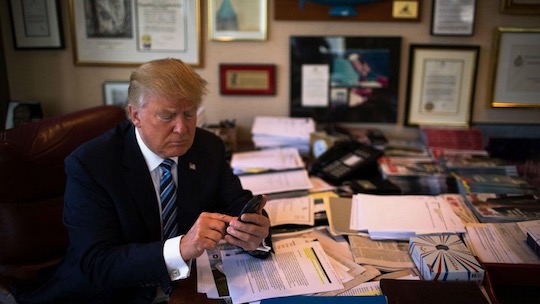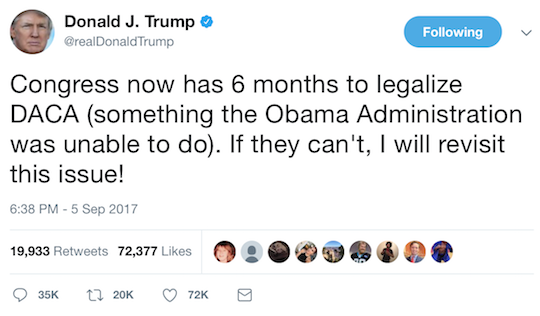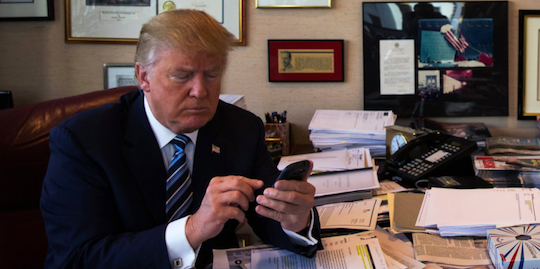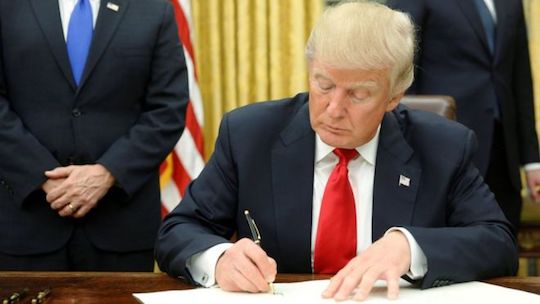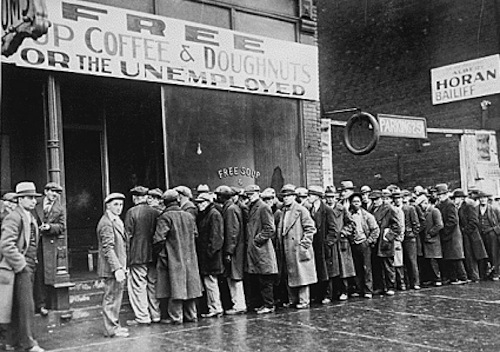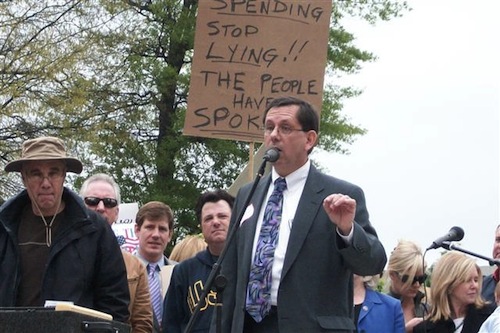One problem with contemporary media is that news outlets are always trying to expand their audiences, but they also present the news as though people had been following it every day. Recent coverage of DACA, the Deferred Action for Childhood Arrivals policy that President Obama adopted in 2012, is a prime example. DACA is not a law, exactly. It’s a policy of the executive branch, which is in charge of immigration enforcement. Under DACA, undocumented immigrants who came to the United States as minors can apply for work permits and a two-year, renewable period in which they will not be deported. It basically means that illegal immigrants who were brought here as children won’t get kicked out.
In its coverage of President Trump’s recent statements on the policy, CNN describes DACA as “a program that gave almost 800,000 young undocumented immigrants protections from deportation.” That’s it. The rest of the story is about Trump’s statements on DACA, different people’s reactions to those statements, Attorney General Jeff Sessions’s position, et cetera. Readers learning about this issue for the first time know DACA is a “program,” whatever that means. They know it “gave…young undocumented immigrants protections from deportation” They know how many people it affects. But the details an informed citizen might use to evaluate this program are absent. DACA becomes the big, vague idea at the center of a report on what everyone else thinks about it. Readers can gather whether they’re supposed to be for or against it based on party affiliation, but they are given very little sense of what DACA actually is.
One victim of this problem appears to be the president. Yesterday, a few hours after he announced that he had instructed the Department of Justice to end the program, Trump tweeted this:
The phrasing of this tweet makes it sound like he believes DACA has been outlawed. Hopefully he is just using “legalize” as shorthand for “make into a law,” but then the parenthetical implies the Obama administration should have done that. Yet the president is against DACA. He doesn’t want it to be the law, unless his objection is that the president does not have the authority to shape immigration policy through selective enforcement. If that’s the case, it’s a radical departure from Trump’s broader views on the power of the executive branch. One wants to give him the benefit of the doubt, here, but the simplest explanation for this tweet is that he, like the CNN reader, has only a vague sense of what DACA is.
Maybe, though, he is playing more of that three-dimensional chess. It’s possible Trump knows that expelling undocumented immigrants is very important to his base but unpopular with a majority of voters. By calling on Congress to address the issue, he can show his core supporters that he is committed to ending DACA without incurring the blowback of it actually happening. It’s a way to blame the legislative branch for his failure to fulfill his campaign promises, as he did with Obamacare.
There’s an easy way to figure out which of those two scenarios we’re dealing with, and that’s for someone to ask President Trump to explain, in his own words, what DACA is. Presumably, any member of the Washington press corps who did that would be banned from the briefing room for life. It’s hard to ask anyone to prove he has basic knowledge of an issue without insulting him—the president much more so. But the same insularity that makes reporters assume their readers already know the details of DACA might blind them to the possibility that Trump isn’t really sure, either. That would be a story, right there.

